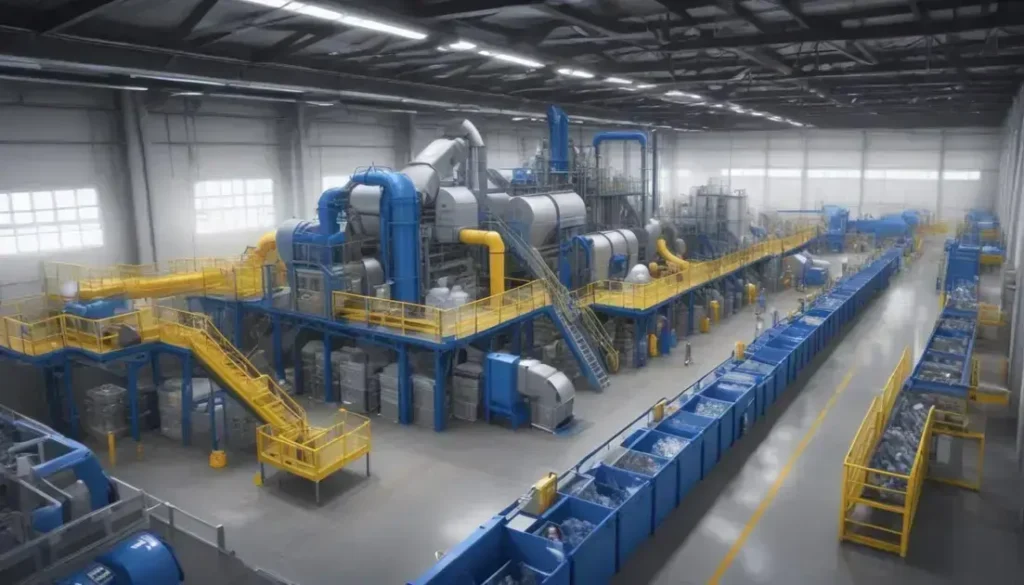Long-duration storage technology, exemplified by the new thermal storage plant in Spain, enhances energy reliability for Canadian businesses by allowing them to store excess renewable energy for later use, thus supporting the transition to cleaner energy sources.
Did you know that long-duration storage is making waves in Europe? A groundbreaking project in Spain could reshape energy sectors, including Canada. Let’s dive into the details!
Overview of the new thermal storage plant in Spain
The new thermal storage plant in Spain represents a significant leap forward in renewable energy technology. Utilizing advanced molten salt systems, it can store thermal energy generated during the day for use at night. This capability enhances energy reliability and paves the way for increased renewable sources in the energy mix.
Strategically located, this plant not only addresses local energy demands but also sets a precedent for long-duration storage solutions globally. It demonstrates how countries can transition from fossil fuels by integrating scalable, reliable energy storage options.
As the global energy landscape evolves, this technology is expected to play a crucial role in stabilizing grid systems, particularly in regions that heavily rely on intermittent sources like solar and wind. The ability to store energy for extended periods opens up new possibilities for manufacturers and energy providers, ensuring they can meet both peak and off-peak demands effectively.
Implications for Canadian businesses in the energy sector
The emergence of the thermal storage plant in Spain has significant implications for Canadian businesses in the energy sector. As Canada aims for a cleaner energy future, this new technology offers valuable insights into renewable energy storage. It showcases how thermal solutions can complement existing systems, providing stability and efficiency.
For Canadian energy companies, understanding the capabilities of long-duration storage is crucial. This technology enables them to manage energy output more effectively and meet the growing demand for renewable sources. With the increasing pressure on firms to reduce carbon footprints, adopting such innovations could lead to a competitive advantage.
Canadian businesses, particularly in provinces like Ontario and Alberta, must assess how these advancements can be integrated into their current infrastructure. Transitioning to reliable energy storage solutions can enhance resilience against outages and price fluctuations. Moreover, cooperation with technology providers in Europe could foster knowledge sharing and accelerate implementation.
Regulatory frameworks will also need to adapt to support this shift towards renewable technologies. Policymakers should prioritize incentives for companies that invest in energy storage, ensuring Canada remains a leader in the green transition.
In Summary: Embracing New Energy Solutions
The new thermal storage plant in Spain highlights the exciting potential of renewable energy technologies. For Canadian businesses in the energy sector, this innovation offers opportunities to improve efficiency and resilience.
By exploring advanced storage solutions like this, companies can better manage energy resources and respond to growing demand for clean energy. The path to a sustainable energy future requires collaboration and adaptation, and Canada has a great chance to lead in this area.
As the industry evolves, staying informed about global advancements will be crucial. By doing so, Canadian businesses can not only enhance their operations but also play a vital role in the fight against climate change.
Embracing these technologies today will set the foundation for a greener tomorrow.
Frequently Asked Questions
What is long-duration storage and why is it important?
Long-duration storage, like the thermal storage plant in Spain, is crucial for managing renewable energy, allowing excess energy to be stored for later use, improving reliability.
How can Canadian businesses benefit from new energy technologies?
Canadian businesses can enhance efficiency, reduce costs, and meet increasing energy demands by adopting innovative solutions like long-duration storage.
What role do regulations play in energy storage adoption?
Regulations can provide incentives for companies investing in energy storage, shaping the market towards cleaner and more sustainable energy practices.
How does the new plant in Spain impact the energy market in Canada?
The plant serves as a model for Canadian companies, demonstrating how advanced storage can integrate with renewable sources and aid in their transition.
What steps should Canadian companies take to implement new energy solutions?
Companies should assess their current systems, explore partnerships with technology providers, and consider pilot projects to evaluate effectiveness before full-scale implementation.
Why is it crucial to stay informed about global energy advancements?
Staying informed helps Canadian businesses remain competitive, enables them to adopt best practices, and positions them as leaders in the energy transition.


